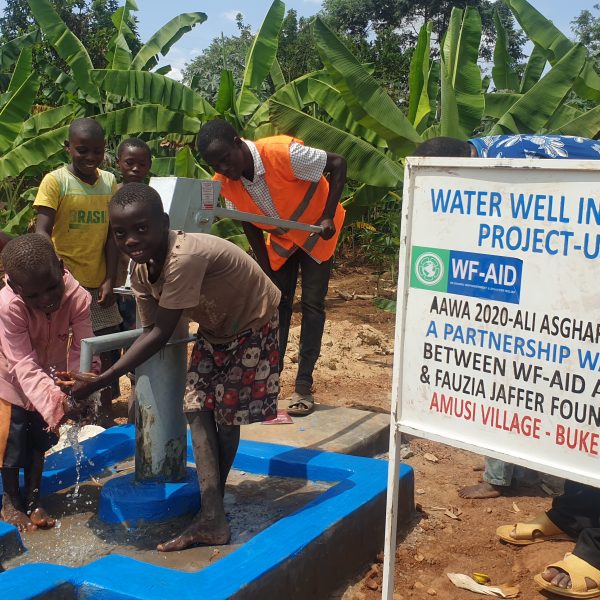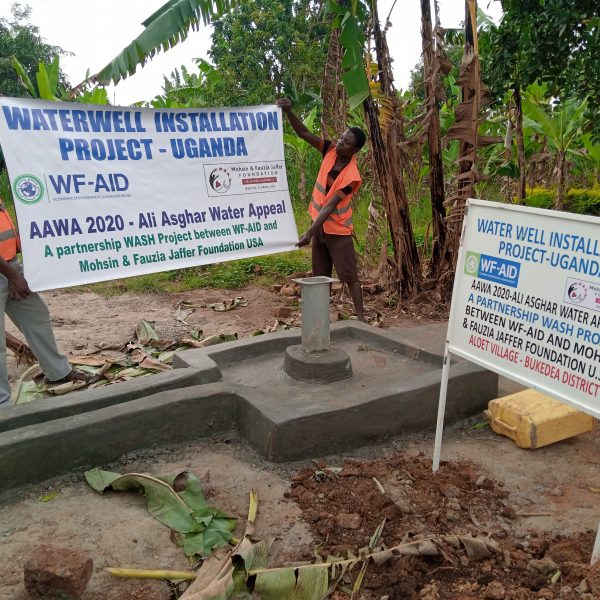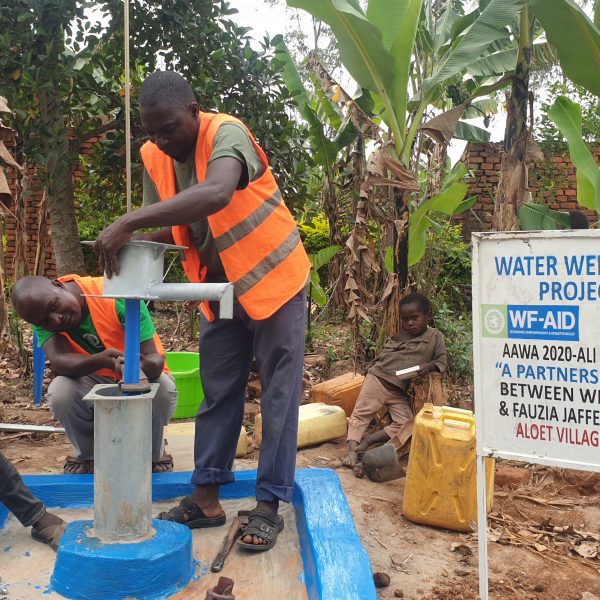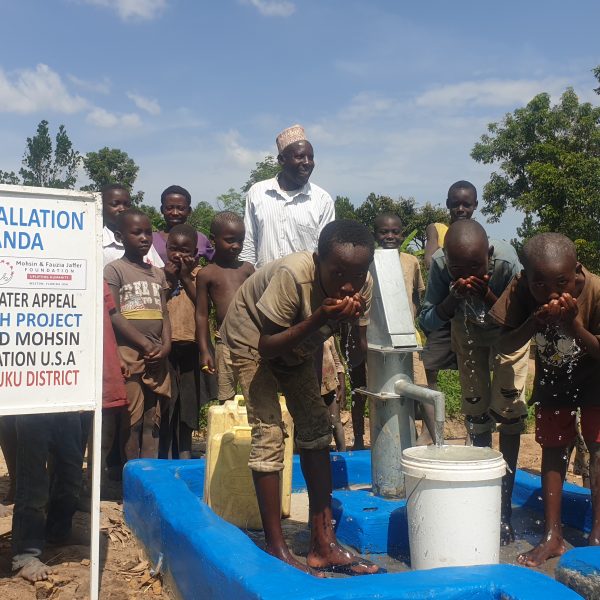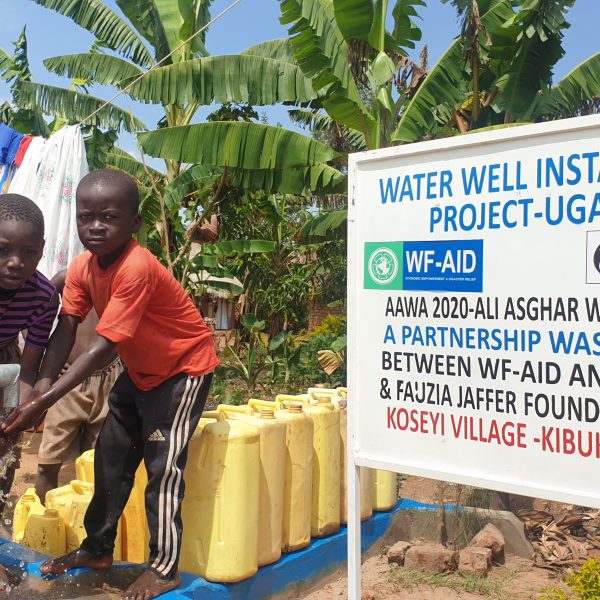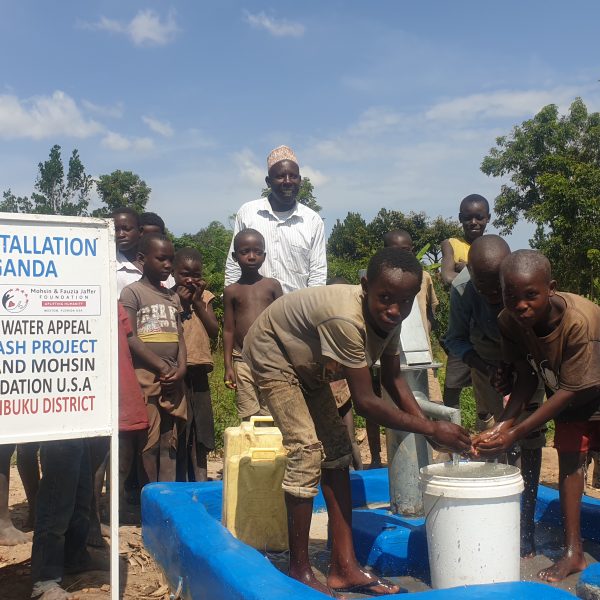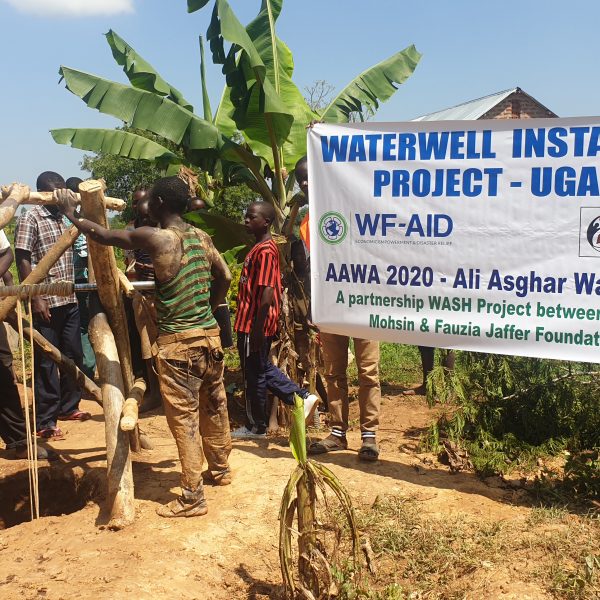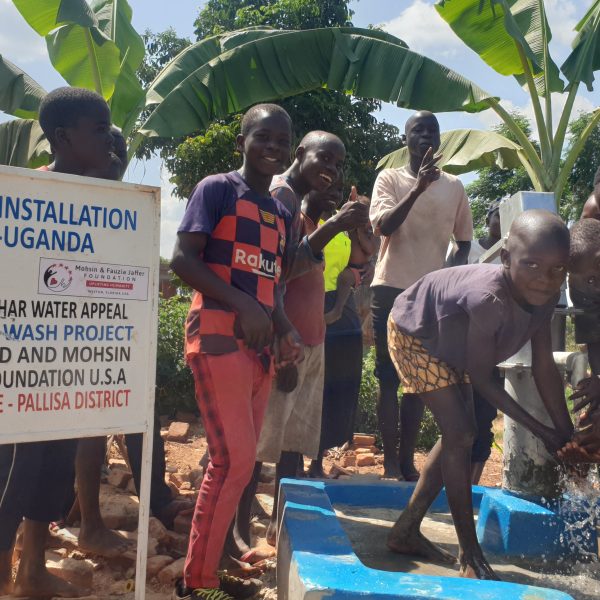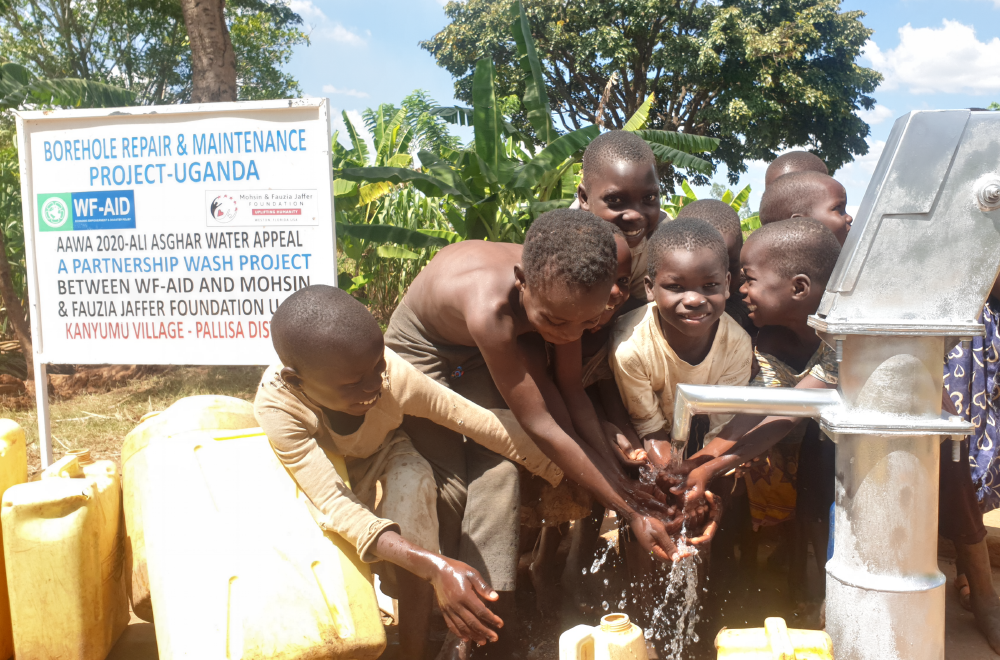
Our Ali Asghar Water Appeal strives towards providing long-term sustainable water solutions to those deprived of access to clean and safe drinking water.
This includes identifying water wells and boreholes that require repair and maintenance to efficiently provide access to clean drinking water to vulnerable households and underdeveloped school sites.
Our teams identified 30 underprivileged sites across three districts of Kibuku, Pallisa, and Bukedea in Uganda, where access to clean drinking water was particularly difficult., meaning women and girls were forced to travel extensive distances of 4 to 5 hours to fetch water from unsanitary wells, streams, and ponds. This contributes to the rise of water-borne diseases, such as amoeba and typhoid in Uganda, as noted by their health sector.
Your donations to our Ali Asghar Water Appeal last year helped to repair 30 exisiting boreholes, 10 boreholes in each district. You also helped to fund 9 hand-dug water wells, with 3 wells in each district to supplement existing water sources, such as local water wells and borehole wells in the areas.
Each well provides access to clean drinking water for 700-900 beneficiaries who would have otherwise had to travel long distances to procure water. To prevent pollution and reduce water-borne disease, the wells are lined and covered, ensuring the community receives clean drinking water for the foreseeable future.
In total, your donations have have provided access to clean and safe water sources for 25,591 needy Ugandan individuals.
Fatema* is one of the beneficiaries you have supported in the Kaparakata Village of Pallisa District. Before the installation of the water well in her village, most of the households were forced to collect water from unsafe water sources where wild animals also drink. It would be especially difficult during dry spell seasons, where women had to travel far distances to collect unsanitary water that would ultimately lead to typhoid infections suffered by children, and even caused many pregnant mothers to miscarry.
Fatema is grateful for the water well in her village as it provides the residents with safe water, and has reduced the time for collecting water from 5 hours to 20 minutes. Women have even started using the water for farming, further providing sustainable life-changing relief.


